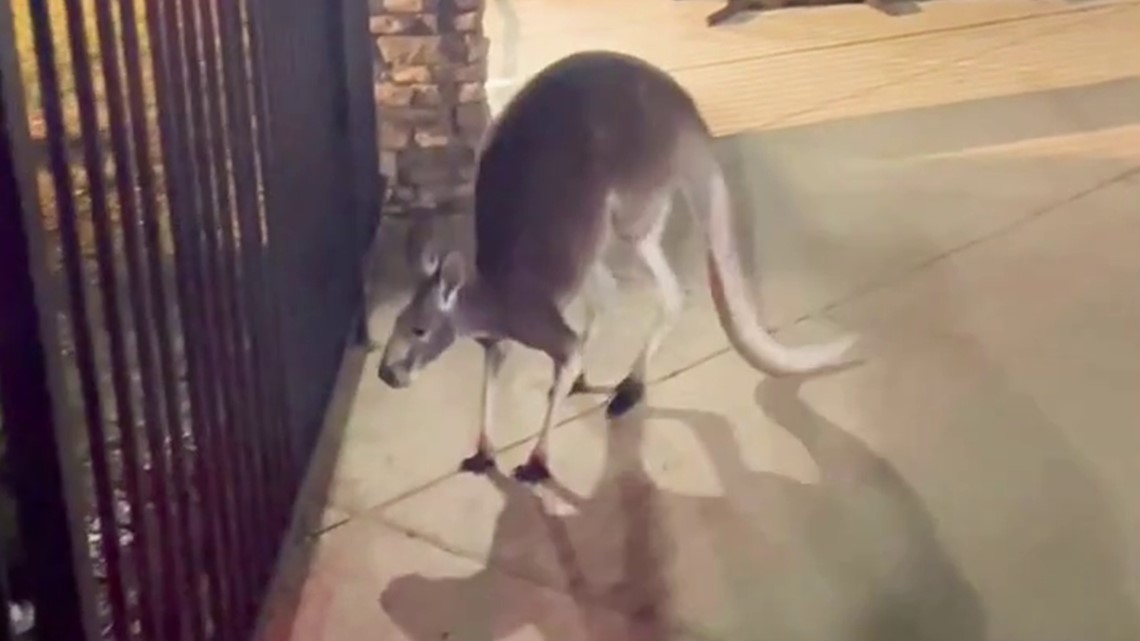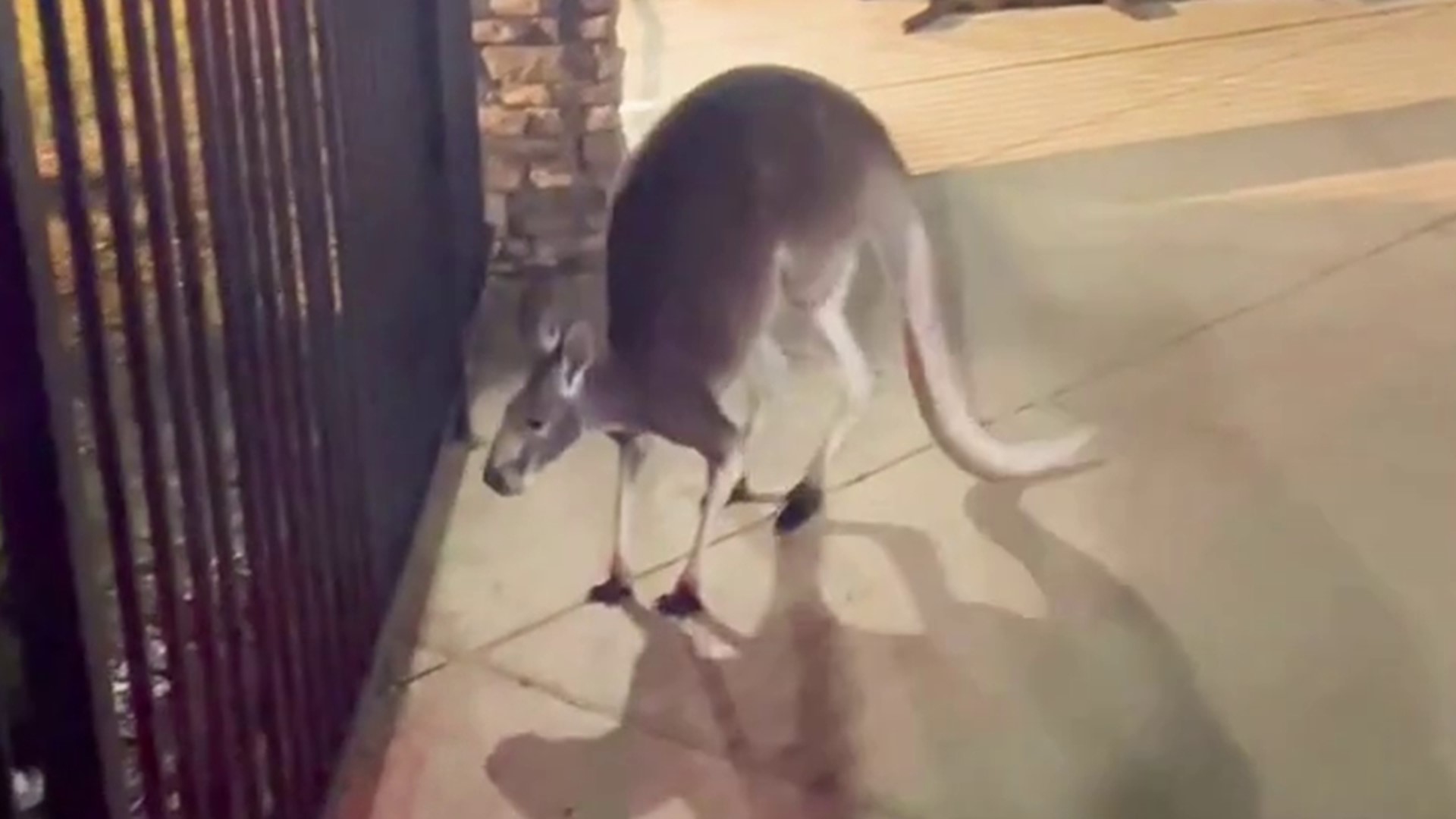TAMPA, Fla. — Deputies with the Hillsborough County Sheriff's Office responded to a rather unusual call Thursday morning in Tampa: a kangaroo on the loose.
According to social media posts from the sheriff's office, the kangaroo had found itself stuck inside an apartment complex's pool area near Fowler Avenue and 56th Street South.
"There's a kangaroo in my apartment complex," a perplexed 911 caller said in a video released by the sheriff's office.
The Hillsborough County Sheriff's Office Agriculture Unit helped to reunite the kangaroo with its owner. Deputies confirmed that the owner had proper registrations for the animal. The agency did not say how the kangaroo got loose.


Later in the video, aerial footage captures the kangaroo hopping around the pool — an unusual site even for Florida's standards.
Kangaroos are famously native to Australia. But, with the right permits, Floridians can own specific wildlife as pets.
Last year, 10 Tampa Bay looked into what wildlife can be owned as pets in Florida. Animals are broken down into three classes: Class I, Class II and Class III.
Class I wildlife is a category of animals that are considered to be a real or potential threat to human safety and are not allowed to be owned as pets. Think of animals like cheetahs, lions, tigers, crocodiles and bears.
Class II wildlife are also considered to present a potential threat to human safety but can be owned as pets.
"Substantial experience requirements and specific cage requirements must be met before a license will be issued," the Florida Fish and Wildlife Conservation Commission's website explains.
Class II animals include bobcats, alligators, giraffes and coyotes.
Lastly, Class III wildlife is such a large classification that there's no specific list of animals. Exotic birds (parrots, parakeets, finches), small mammals (foxes, skunks, raccoons, lemurs), many reptile species (snakes, lizards, turtles, tortoises) and all amphibian species (frogs, salamanders, etc.) are included.
Venomous reptiles, with exclusions, are in a class of their own and require specific licenses.

